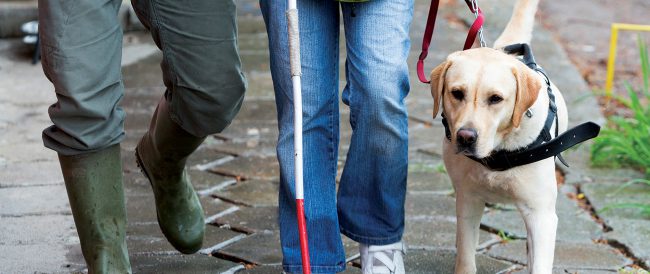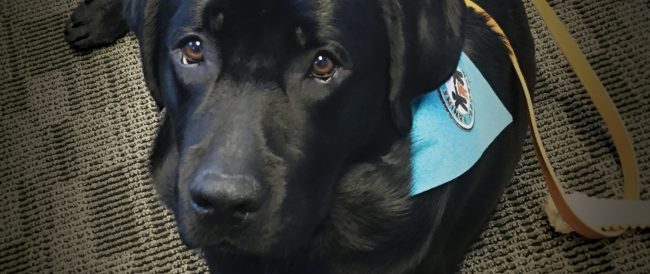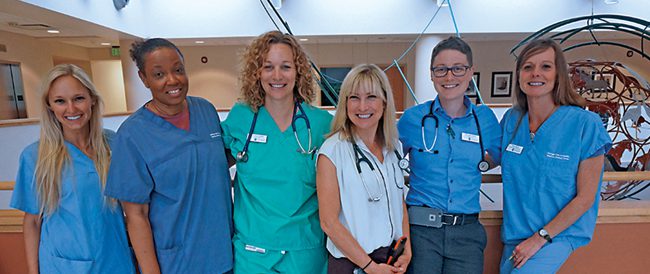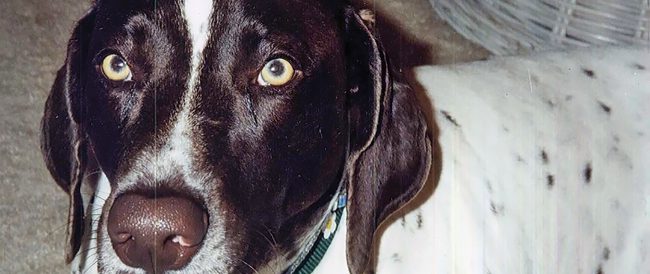 Read More
Read More
Four-footed cops to the rescue: police dogs are officers, partners, and protectors.

Since the Middle Ages, dogs have been used in law enforcement as hunters, workers, and protectors. The first organized police dog service program, introduced in late-1800s Belgium, spread across Continental Europe. In 1920, the first dog training school opened, courtesy of the German police. The dogs trained in obedience, tracking, and attacking criminals.
Today, dogs are bred for the line of duty. From Amsterdam—the largest exporter of police dogs—or the Czech Republic, to Sommerset, Texas or Lansing, Michigan, these working animals attend training schools that are like the first of their kind from 1920. Across the world, they exist to train police dogs for their role in law enforcement teams, often called Canine Units (or “K-9 Units”).

The increased presence, importance, and function of police dogs from the Middle Ages to now is a result of humanity’s increased understanding of their abilities, how those abilities can be used to help humans, and the bond that exists between humans and animals, especially those who serve together. Police dogs are known for their impressive drive to work, their undeniable desire to cooperate with their handlers, and their tenacity while fighting criminals; they are trained professionals.
The handler-canine bond
Established in 1960 by Trooper Richard Abbott and Jocko (canine), the Michigan State Police (MSP) Canine Unit is one of the largest and busiest canine units in the country. At 51 handler-canine teams strong, MSP serves 24 hours a day, 7 days a week, and responds to approximately 5,000 requests per year. While some police dogs train for a single purpose and others are dual-purpose, all police dogs aim to meet one goal: to serve and protect their handler.
“We spend more time with our dogs than we do with our family,” says Dave Yount, sergeant of the MSP Canine Unit.
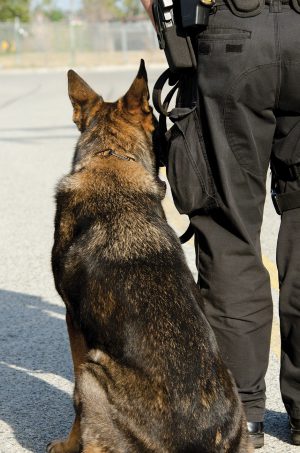
All 51 of the MSP handler-canine teams are required to complete a 14-week, 500-hour Basic Canine School training in 7 disciplines prior to serving: tracking, building search, area search, property search, obedience, aggression, and narcotics detection. There also are specialty officer-canine teams: cadaver detection, accelerant detection, cyber detection, and explosives detection. In Post-Basic Canine School training, all Canine Unit teams complete 3 evaluations each year and 8 hours of training per week to maintain their mental and physical strength and abilities, and to further build their bond. The training uses positive reinforcement; the dogs are determined to work, never forced to.
In many situations, police dogs are first to put their lives on the line to protect their human partners. This can mean biting and holding a dangerous suspect, entering a bomb-threatened facility, or shielding their team from bullets. These canines know when someone is a threat and to act solely on the command of their handlers. “We communicate with our canine partners through commands, task-specific equipment, body language, and constant training and time together. Our bond is very close,” says Yount.
The bond that exists between police officers and their canine partners helps the teams keep the public safe. “By learning to observe our canine’s nonverbal behaviors, body language, and overall demeanor, we can understand and communicate with our canines,” says Yount. While one of the main disciplines of police dog training is obedience, the canines also possess a natural instinct and desire to love and respect their handlers. Another characteristic of this unique relationship is that handlers and canines are never apart from each other, even when they go to the vet.
MSU protects those who serve us

Nine years after its establishment, the Michigan State University Veterinary Medical Center began serving the MSP Canine Unit. Forty-nine years later, the Hospital remains the number-one choice for the Canine Unit’s veterinary medical care.
“The Hospital’s Primary Care Service is excellent; they are reliable and accommodating, and we are very fortunate to have this long-standing relationship with MSU,” says Yount. “All of the MSP dogs know the Primary Care team very well; most of them having been coming here for their entire lives.”
The Primary Care Service at MSU provides routine health care including physical examinations, wellness care for all life stages, vaccinations, and treatment of minor injuries or illnesses. If the need exists, the Primary Care team may refer the patient to 1 of the more than 20 specialty services in the Hospital.
“I have known Sergeant Yount, and have been the Primary Care veterinarian for many of the MSP canines, for 15 years,” says Dr. Jane Merrills, assistant professor for the Department of Small Animal Clinical Sciences and clinician for the Hospital’s Primary Care Service. “The longevity of our relationship benefits the handlers and, most importantly, their canine partners because my team and I know the dogs and their handlers very well and they trust us.”
In addition to the MSP Canine Unit, the Hospital also serves the Michigan State University, East Lansing, and Ingham County Canine Units—and occasionally, the Saginaw Tribe, Grosse Pointe, Southfield, and Ann Arbor Canine Units. The Primary Care Service blocks off two- and three-day chunks bi-annually, during which time Merrills and her team treat police dogs only. “We try to be as accommodating and efficient as possible while also being thorough,” says Merrills.
“The handlers know their dogs better than anyone. So, the bond between the Primary Care team and the handlers is very important”
— Dr. Jane Merrills
This is because working dogs can have different medical needs including performance-specific nutrition evaluations and extensive parasitic and preventative screenings. In addition, their high pain threshold and desire to work makes them stoic. The breadth of the evaluation allows the Hospital to plan for and best serve their working dog clients, while being respectful of the time that they and their handlers are spending away from their important work.
“The handlers know their dogs better than anyone. So, the bond between the Primary Care team and the handlers is very important,” says Merrills. “This trust is especially important because, though the police dogs are trained to react on command only, they are still protectors with natural instincts that may lead them to feel threatened. So, this bond enables us to provide better care for their canines because the handlers trust us and in turn, so do their dogs.”
A note from the veterinarian

Merrills became passionate about caring for working animals while she was a student in veterinary school. “I bond very closely with my patients,” says Merrills, who plans to complete the University of Pennsylvania School of Veterinary Medicine’s Working Dog Practitioner Program. “I know several police dog handlers, I know the work they do, and to me, providing their canines with exceptional care is my way of serving the community and giving back to the canine units; they play such an important role in keeping me, my family, and all of us safe.
“There is such a close bond between the handlers and the police dogs that I don’t think people necessarily realize,” continues Merrills. “When they are at public events, they are constantly communicating with one another, knowing that they are there for a reason—to protect people—and the canine teams are amazing at their job. Keeping the police dogs healthy and preventing any medical conditions is the Hospital’s contribution to the community.”
If you are interested in donating to the Retired Police Dog Fund, please contact Eric Langdon, associate director of the College’s Office of Development, at langdon4@cvm.msu.edu.






